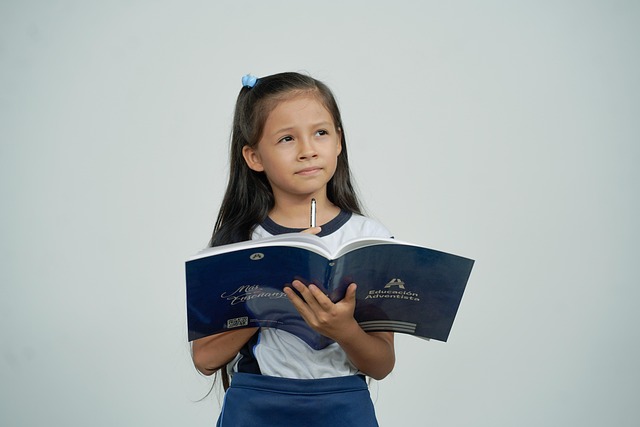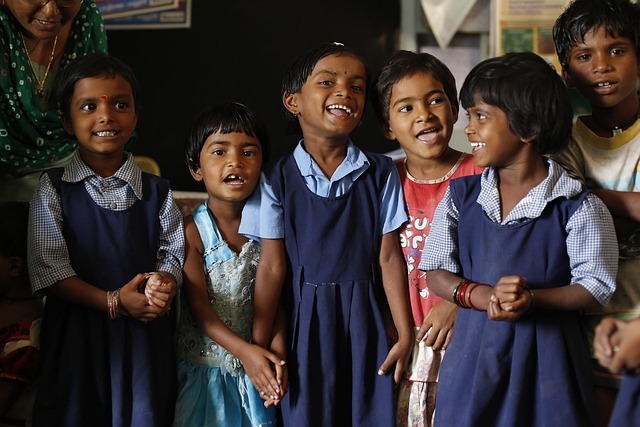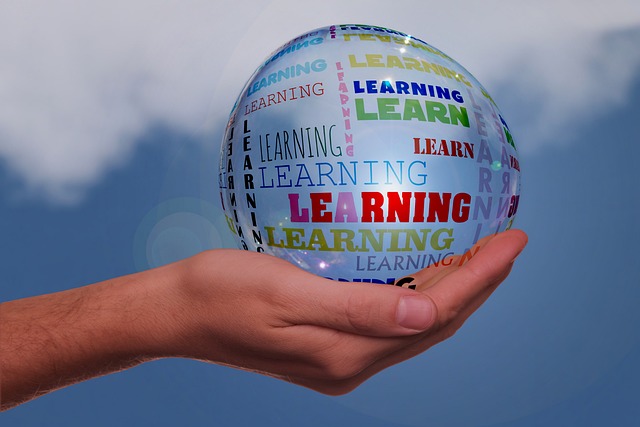The evolution of remote learning in Karachi reflects global trends driven by technology, with the COVID-19 pandemic acting as a catalyst for digital education adoption. Karachi has emerged as a global leader in digital education, leveraging advanced internet infrastructure and AI/VR technologies to create innovative online platforms that cater to diverse students worldwide. Learning Management Systems (LMS) have significantly transformed education, offering interactive features and personalized learning paths. Virtual classrooms enhance student engagement and accessibility, bridging physical and digital learning spaces. The future of education in Karachi looks poised for a dramatic shift with AI and VR, revolutionizing remote learning globally.
The evolution of remote learning frameworks has transformed education globally. This article delves into the historical rise of remote learning, highlighting Karachi’s pivotal role in shaping digital education platforms. From innovations in Learning Management Systems (LMS) to engaging students through virtual classrooms, we explore the past and present. Furthermore, we gaze into the future, considering the potential impact of AI and VR on this dynamic landscape. Discover how these advancements are reshaping educational experiences, especially in cities like Karachi.
- The Rise of Remote Learning: A Historical Perspective
- Karachi's Role in Shaping Digital Education Platforms
- Innovations in Learning Management Systems (LMS)
- Engaging Students Through Virtual Classrooms
- Future Trends: AI, VR, and the Evolving Landscape
The Rise of Remote Learning: A Historical Perspective

The concept of remote learning has evolved significantly over time, especially as technology advanced and society became more digitally connected. In the early days, education was predominantly confined to physical classrooms in cities like Karachi, where teachers imparted knowledge face-to-face. However, with the advent of the internet, distance learning started gaining traction, breaking down geographical barriers. Online courses and virtual classrooms began to emerge, allowing students from diverse locations to access educational resources and interact with instructors remotely.
This shift towards remote learning gained momentum in the 21st century, driven by rapid technological innovations. The global COVID-19 pandemic further accelerated this trend as schools, colleges, and universities around the world had to abruptly transition to online education to ensure continuity amidst lockdowns and social distancing measures. This sudden shift highlighted the resilience and adaptability of remote learning frameworks, as students and educators in Karachi, and indeed across the globe, adjusted to new ways of teaching and learning.
Karachi's Role in Shaping Digital Education Platforms

Karachi, Pakistan’s economic hub and a city known for its vibrant cultural tapestry, has emerged as a significant player in shaping digital education platforms. The city’s tech-savvy community and robust internet infrastructure have fueled the growth of online learning initiatives. Many educational institutions and startups in Karachi are at the forefront of developing innovative remote learning frameworks, catering to a diverse range of students globally.
The unique blend of technological expertise and cultural diversity in Karachi has contributed to the creation of user-friendly digital education platforms. These platforms leverage advanced technologies like artificial intelligence and virtual reality to enhance the remote learning experience. By embracing digital transformation, Karachi is not only revolutionizing education but also setting an example for other cities worldwide, demonstrating how urban centers can harness technology to bridge educational gaps and promote global accessibility in learning.
Innovations in Learning Management Systems (LMS)

The digital revolution has brought about significant transformations in education, and at the forefront of this shift are Learning Management Systems (LMS). These systems have evolved from simple online course hosting platforms to become powerful tools for remote learning, especially in diverse urban centers like Karachi. Over time, LMS innovations have aimed to bridge the gap between physical classrooms and virtual ones, ensuring an engaging and structured learning environment.
One notable evolution is the integration of interactive features such as live webinars, video conferencing, and gamified modules, which enhance student participation and interaction. This shift has been particularly beneficial for Karachi’s growing e-learning market, where diverse learners require flexible and accessible educational resources. With continuous updates, LMS platforms now offer personalized learning paths, adaptive assessments, and robust analytics, catering to individual student needs and ensuring effective knowledge retention.
Engaging Students Through Virtual Classrooms

In the digital landscape of Karachi, virtual classrooms have emerged as a powerful tool in the evolution of remote learning frameworks. These online spaces go beyond traditional teaching methods by creating an interactive and engaging environment for students across diverse geographical locations. Through innovative technologies, educators can now incorporate real-time communication, multimedia presentations, and collaborative activities to enhance the learning experience. Students in Karachi, once limited to physical classrooms, now have access to a dynamic educational setting that fosters active participation and interaction with peers and instructors.
The integration of virtual classrooms has been particularly beneficial for students who face challenges attending traditional schools due to distance or other constraints. It enables them to stay connected, participate in discussions, and complete assignments effectively, bridging the gap between physical and digital learning spaces. This approach ensures that education remains inclusive and accessible, allowing students in Karachi and beyond to thrive academically in a rapidly changing world.
Future Trends: AI, VR, and the Evolving Landscape

As we peer into the future of education, several emerging technologies stand out as game-changers for remote learning frameworks in Karachi and beyond. Artificial Intelligence (AI) promises to personalize learning experiences at scale, adapting content and instruction to meet individual student needs. This shift towards adaptive learning could significantly enhance engagement and outcomes, especially in diverse educational settings.
Virtual Reality (VR) further transforms the learning landscape by creating immersive, interactive environments. Students in Karachi can virtually explore historical sites, conduct scientific experiments, or even travel to distant locations, all from their classrooms. This technology not only enriches learning but also fosters a deeper understanding of complex concepts, making education more engaging and effective. The integration of AI and VR promises an exciting evolution in remote learning, shaping the educational landscape in Karachi and globally.
The evolution of remote learning frameworks is a testament to Karachi’s pivotal role in shaping digital education platforms. From historical perspectives, the rise of remote learning has been nothing short of transformative, and innovations like Learning Management Systems (LMS) have significantly enhanced student engagement through virtual classrooms. As we look towards the future, AI and VR promise to further revolutionize education, creating an ever-evolving landscape that continues to break down geographical barriers. Karachi remains at the forefront of this digital revolution, driving progress and ensuring accessible, quality education for students worldwide.
